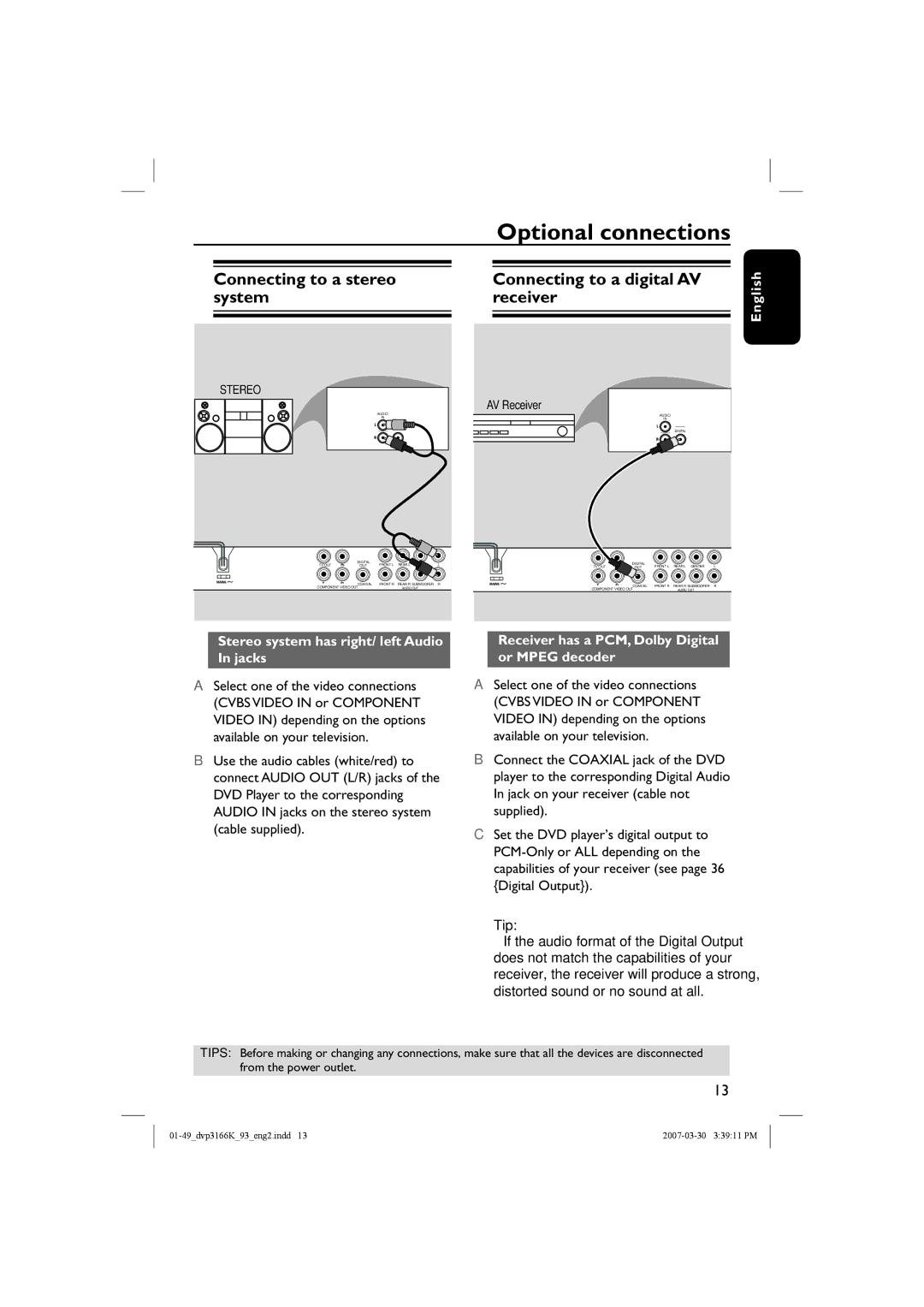
|
|
| Optional connections |
|
|
|
|
|
|
|
|
| Connecting to a stereo |
| Connecting to a digital AV |
| system |
| receiver |
|
|
|
|
|
|
|
|
English
STEREO
AUDIO
IN
DIGITAL
AV Receiver
AUDIO
IN
DIGITAL
TV OUT | DIGITAL | FRONT L | REAR L | CENTER | L |
| DIGITAL |
|
|
|
|
OUT | TV OUT | FRONT L | REAR L | CENTER | L | ||||||
|
|
|
|
|
| OUT | |||||
COMPONENT VIDEO OUT | COAXIAL | FRONT R | REAR R | SUBWOOFER | R |
| COAXIAL | FRONT R | REAR R | SUBWOOFER | R |
|
| AUDIO OUT |
| COMPONENT VIDEO OUT |
|
| AUDIO OUT |
| |||
|
|
|
|
|
|
|
|
| |||
Stereo system has right/ left Audio In jacks
Receiver has a PCM, Dolby Digital or MPEG decoder
ASelect one of the video connections (CVBS VIDEO IN or COMPONENT VIDEO IN) depending on the options available on your television.
BUse the audio cables (white/red) to connect AUDIO OUT (L/R) jacks of the DVD Player to the corresponding AUDIO IN jacks on the stereo system (cable supplied).
ASelect one of the video connections (CVBS VIDEO IN or COMPONENT VIDEO IN) depending on the options available on your television.
BConnect the COAXIAL jack of the DVD player to the corresponding Digital Audio In jack on your receiver (cable not supplied).
CSet the DVD player’s digital output to
Tip:
– If the audio format of the Digital Output does not match the capabilities of your receiver, the receiver will produce a strong, distorted sound or no sound at all.
TIPS: Before making or changing any connections, make sure that all the devices are disconnected from the power outlet.
13
